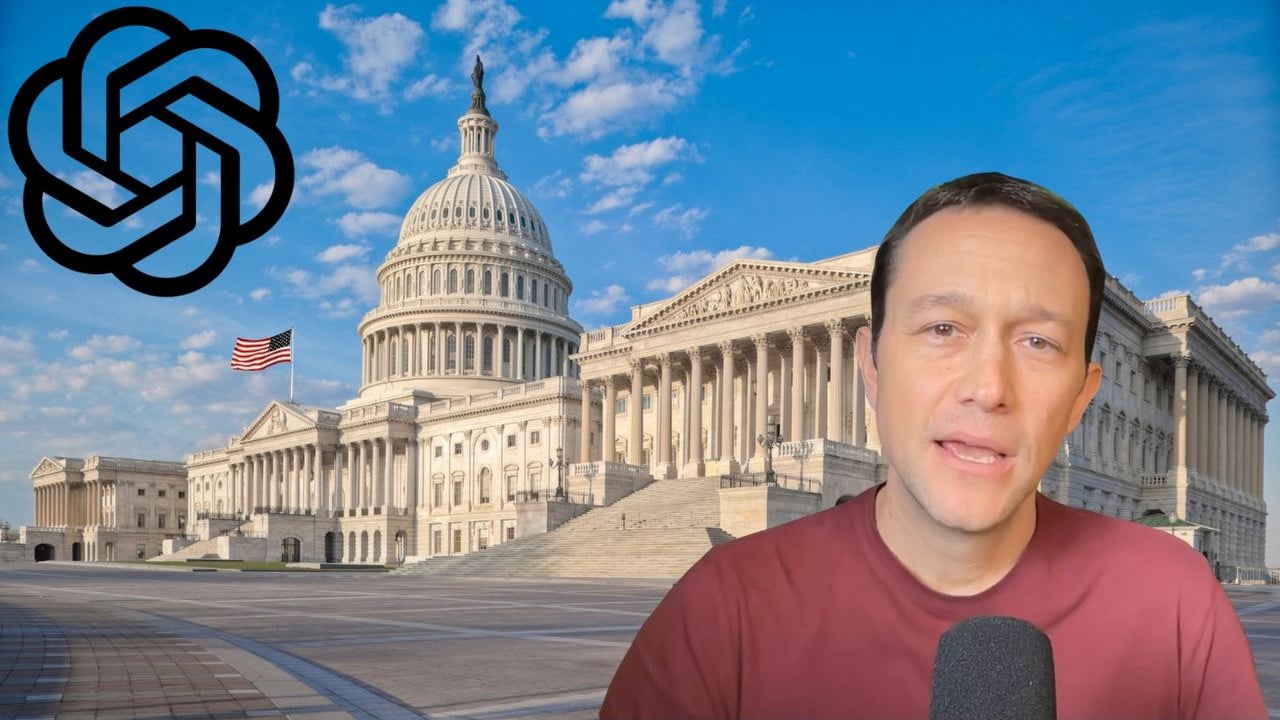
Joseph Gordon-Levitt, known for his roles in films like 500 Days of Summer and Inception, recently used social media to urge people to oppose the inclusion of artificial intelligence in the yearly National Defense Authorization Act. This call to action comes at a time when AI regulation is a hot topic. Just yesterday, President Trump shared his thoughts online, advocating for a single national standard for AI instead of a state-by-state approach, as reported by Reuters. This suggests the administration is planning federal rules for artificial intelligence.
“Contact your representatives.” National standard for AI regulation snuck into NDAA
Artificial intelligence is generating a lot of debate right now. Recent reports revealed that AI-powered children’s toys could potentially give dangerous instructions, like how to light matches. Google’s CEO has even compared the current excitement around AI to the dot-com boom of the late 1990s, suggesting a potential crash could impact every company. Beyond that, the use of AI in creative fields, such as video games, is also causing discussion. Popular games like ARC Raiders and Dispatch are exploring different ways to incorporate AI into their gameplay.
Reporting by TechPolicy.Press revealed that House Majority Leader Steve Scalise – who previously used the term “lazy gamer” to defend cuts to healthcare – stated that Congress is considering adding a provision to the National Defense Authorization Act. This provision would temporarily prevent states from making their own rules about artificial intelligence. This isn’t the first attempt to pass this regulation; it was initially part of a bill called the “Big Beautiful Bill” this July, but was removed after several groups actively opposed it, according to Public Citizen.
If this temporary ban on state-level rules is approved, states wouldn’t be able to regulate artificial intelligence for at least a decade. This would give the federal government complete control over AI regulation, and the current administration has strongly indicated its priorities. According to Reuters, President Trump recently stated that state overregulation could harm AI development and that the U.S. needs to beat China by becoming the global leader in artificial intelligence.
As Joseph Gordon-Levitt highlights, the core issue is financial gain. It seems unlikely AI companies would agree to state-by-state regulations when they appear to have influence with those in power. NPR reported soon after the election that OpenAI’s CEO, Sam Altman, planned to donate $1 million to Donald Trump’s inauguration, alongside other tech leaders like Mark Zuckerberg of Meta and Jeff Bezos of Amazon.
If this pause on regulation is allowed to continue, states won’t be able to create rules that address the specific needs of their communities. While things might seem okay now, circumstances could change in the future. Should workers at these companies have protections based on where they live? Should AI companies be responsible for minimizing their environmental impact locally? It seems like the main aim of federal regulation is simply to succeed, regardless of the consequences. Ultimately, it will likely benefit wealthy companies while making it harder to protect anyone else.
If you’re concerned about this, follow Gordon-Levitt’s advice and contact your elected officials. Strong public opposition could lead lawmakers to remove the restriction, similar to what happened with a previous bill earlier this year. You can easily find your representatives by using this government website – just enter your zip code and click “Find Your Rep By Zip.” This will usually lead you to a page with their contact details. The vote on this is expected before Thanksgiving, which is November 27th – less than a week away – so it’s important to act quickly.
Read More
- My Favorite Coen Brothers Movie Is Probably Their Most Overlooked, And It’s The Only One That Has Won The Palme d’Or!
- The Batman 2 Villain Update Backs Up DC Movie Rumor
- Thieves steal $100,000 worth of Pokemon & sports cards from California store
- Adolescence’s Co-Creator Is Making A Lord Of The Flies Show. Everything We Know About The Book-To-Screen Adaptation
- ‘Veronica’: The True Story, Explained
- Decoding Cause and Effect: AI Predicts Traffic with Human-Like Reasoning
- Future Assassin’s Creed Games Could Have Multiple Protagonists, Says AC Shadows Dev
- Tiger King star Joe Exotic is selling phone calls from prison for Christmas
- Rio & Rio 2 Set Netflix Streaming Date
- First Glance: “Wake Up Dead Man: A Knives Out Mystery”
2025-11-20 00:02